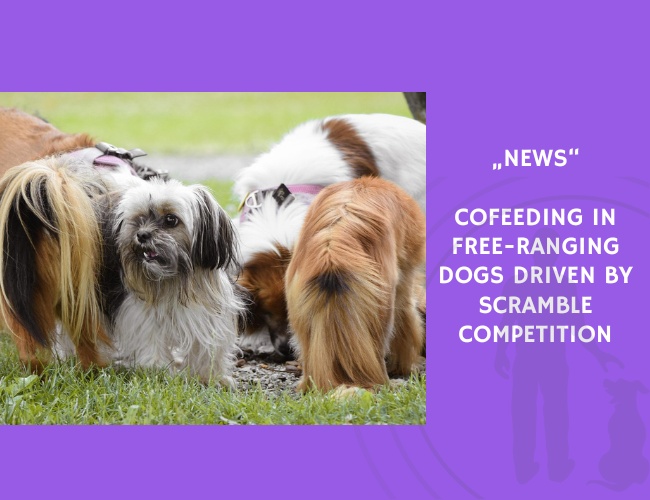Andreas Berghänel and colleagues (2025) investigated feeding dynamics among free-ranging dogs to understand why animals sometimes cofeed peacefully instead of fighting for food. While small food patches were almost always monopolized by single dominant individuals, large food patches attracted dense feeding groups where many dogs ate together.
Statistical analyses showed that both dominance rank and social relationship strength predicted access to food, suggesting that contest competition and social tolerance influenced feeding. However, as group size increased, aggression rates by dominants decreased, indicating that monopolization became impossible and competition shifted toward scramble dynamics, where individuals feed rapidly without direct conflict.
This finding challenges the assumption that peaceful cofeeding necessarily reflects social tolerance. Instead, it may arise when dominants lose control due to the sheer number of competitors. Fighting under these conditions would only waste time and reduce the dominant’s own intake. The study highlights how ecological context—such as food distribution and group size—can transform social interactions in dogs and other group-living animals.
Source: Berghänel, A., Lazzaroni, M., Ferenc, M., Pilot, M., Berbri, I. E., Marshall-Pescini, S., & Range, F. (2025). Cofeeding at rich clumped food patches in free-ranging dogs: social tolerance or scramble competition? Journal: Behavioral Ecology and Sociobiology, Volume 79. Publication Date: 2025-04-01. Authors: Andreas Berghänel, Martina Lazzaroni, M. Ferenc, M. Pilot, I. E. Berbri, S. Marshall-Pescini, F. Range.










